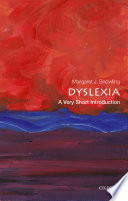

Most ebook files are in PDF format, so you can easily read them using various software such as Foxit Reader or directly on the Google Chrome browser.
Some ebook files are released by publishers in other formats such as .awz, .mobi, .epub, .fb2, etc. You may need to install specific software to read these formats on mobile/PC, such as Calibre.
Please read the tutorial at this link: https://ebookbell.com/faq
We offer FREE conversion to the popular formats you request; however, this may take some time. Therefore, right after payment, please email us, and we will try to provide the service as quickly as possible.
For some exceptional file formats or broken links (if any), please refrain from opening any disputes. Instead, email us first, and we will try to assist within a maximum of 6 hours.
EbookBell Team

4.8
64 reviewsSince dyslexia was first described in the British Medical Journal in 1896, there has been debate about the definitions and diagnostic procedures used, with some casting doubt on its very existence. However, there is now a considerable body of research regarding the nature and characteristics of this relatively common learning disorder. The contemporary view of dyslexia has emerged from a century of research in medicine, psychology and more recently neuroscience, and we now understand enough about this learning disorder to guide policy and practice. This Very Short Introduction provides an accessible overview of this exciting field of research, beginning with its history, and drawing on testimony from people living with dyslexia. Considering the potential causes of dyslexia, and looking at both genetic and environment factors, Margaret Snowling shows how cross-linguistic studies have documented the prevalence of dyslexia in different languages. Discussing the various brain...